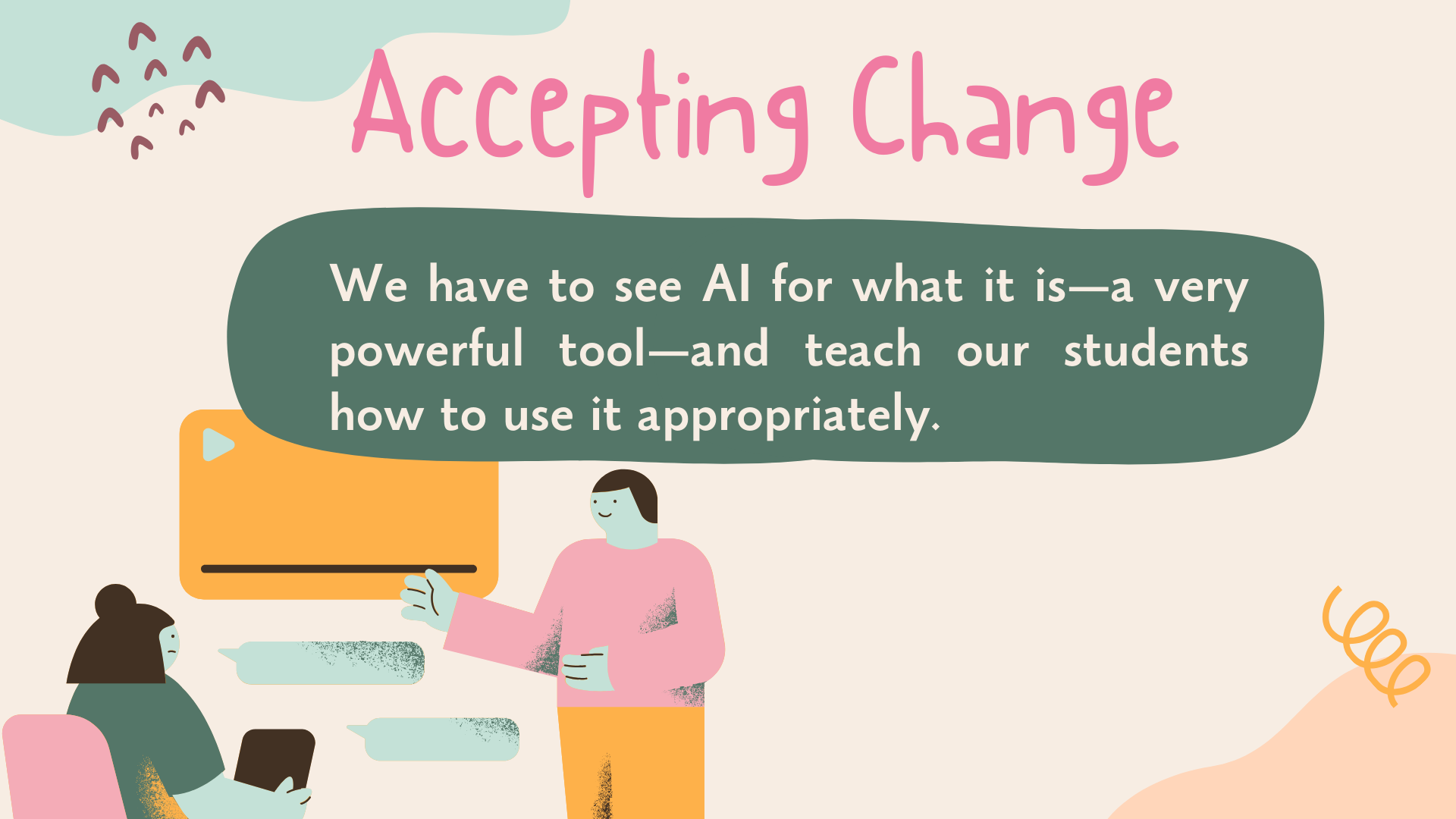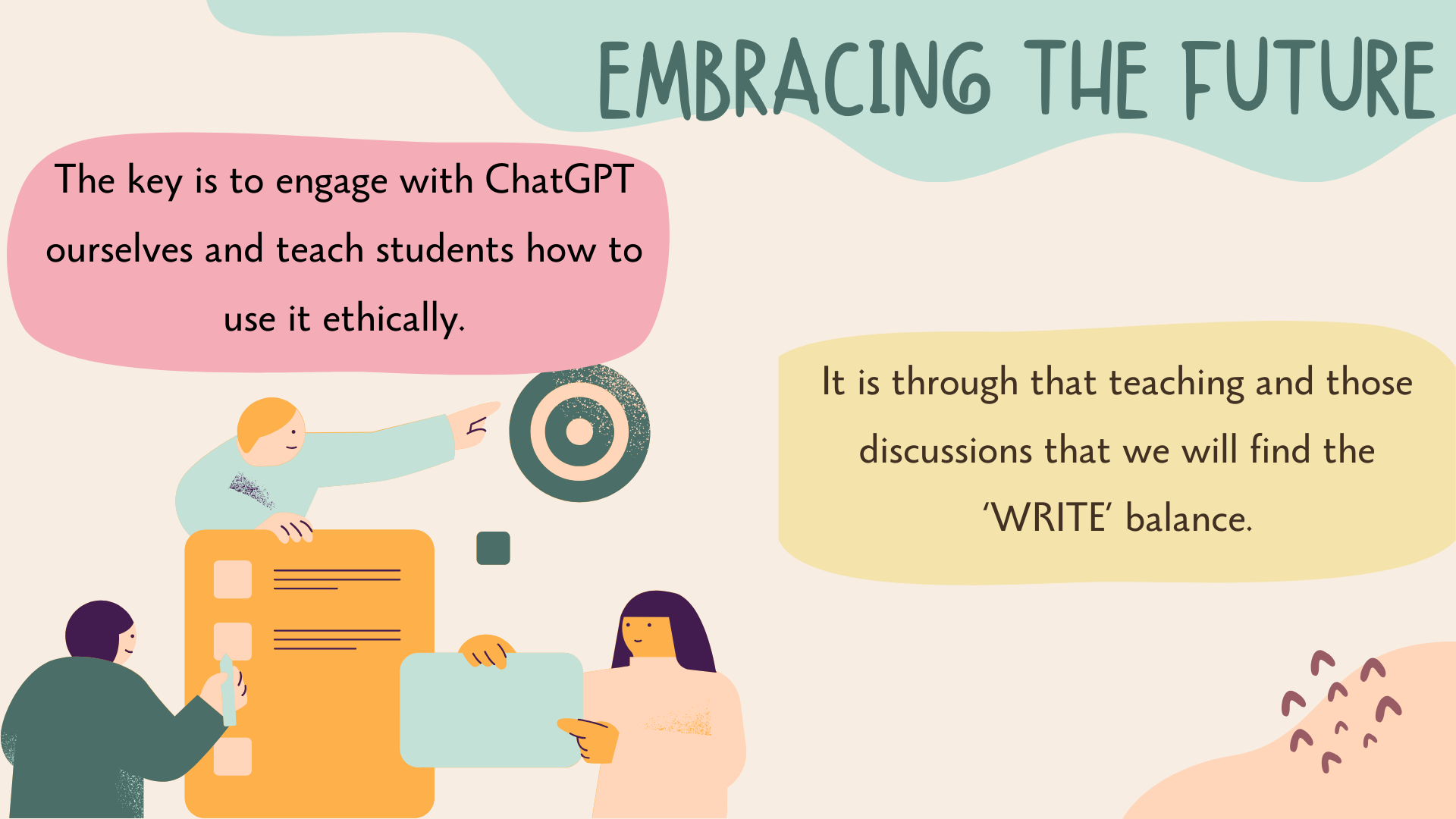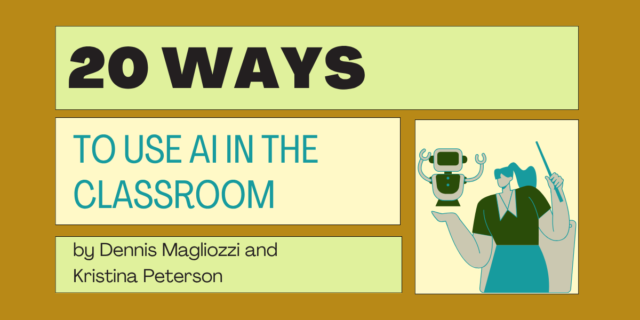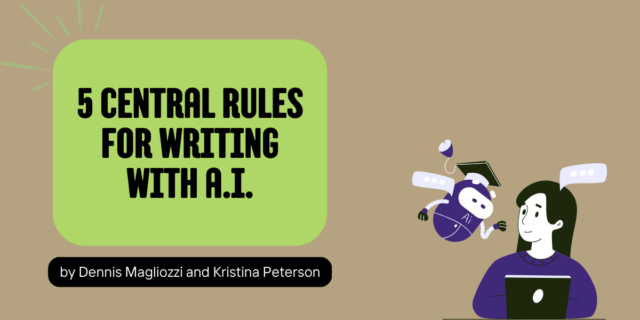
By Dennis Magliozzi and Kristina Peterson. This is part one of a three-part series. See part two here and part three here.
Editor's Note: This was originally posted in May 2024.
***
It is hard to ignore the profound impact generative AI programs like ChatGPT are having in education. Within just a month of ChatGPT's launch in November 2022, we began noticing a clear shift in the submissions of our high school students. They were turning in writing assignments that didn't seem like their voice. Despite our lessons about voice in writing, whether it's a shift in word choice or syntax or some anomaly that doesn’t belong, teachers see the change as quickly as we do a light go from green to red.
Instead of feeling like we have to refine our teaching toward becoming plagiarism investigators, our time in education can be better spent learning how to embrace this new frontier. Not necessarily because we want to, but because we have to.
Accepting Change

The world is always changing, and so too does education. Ignoring the immense presence of ChatGPT would be the same as closing our eyes to the start of the internet or the mass production and availability of graphing calculators. Even though it may seem we have an option, even though we may think resorting to pen and paper essays is the answer, this is not an either-or decision we are faced with. ChatGPT is here. It’s in our classrooms. It's in yours. And it’s here to stay.
Educators have always needed to prepare students for a future we have yet to imagine, for jobs that have not yet been created. This moment in education is no different. We have to see AI for what it is—a very powerful tool—and teach our students how to use it appropriately. Otherwise, we will fail to educate future generations not only about how to navigate the technology of our time, but how something like writing fits into this futuristic picture as well.
Embracing the Future

Perhaps a best foot forward is to take some time to consider how it is we are teaching writing to begin with. There are a number of approaches we can take, and the bad news is that no model can eradicate the problem of having to read AI-generated responses for the remainder of our careers. While the academic five paragraph essay presents itself as low hanging fruit for writing programs like ChatGPT, even the most creative writing assignments are not bot proof. The two of us have been teaching writing through the workshop model for close to two decades. We hoped this approach to writing alongside our students would remove any worry about ChatGPT; sadly, that is not the case.
While many teachers may still be cautious about ChatGPT’s role in the classroom, it's important to know that most students will, if they have not already, make use of ChatGPT on their educational journey. And teachers will have to answer questions we may not be ready to answer yet: how much ChatGPT support is too much? If a student uses a sentence or two from ChatGPT, is that considered plagiarism? Is it okay for teachers to use it, and ban it for students? We have to face these questions and others we cannot predict right now. As with every tool, the key is to engage with it ourselves and teach students how to use it ethically. And it is through that teaching and those discussions that we will find the ‘write’ balance.

***


Kristina Peterson and Dennis Magliozzi have been teaching English at Exeter High School since 2008. Kristina has a master’s degree in teaching and over a decade of experience mentoring teachers. Dennis holds an MFA in poetry and a PhD in Curriculum and Instruction. Together they co-teach in the University of New Hampshire’s Writers Academy and Learning Through Teaching program. They are also Ambassadors to the award-winning Arts in Action program, and the cofounders of Bookshelf Diversity, a statewide grant project that provides diverse books to New Hampshire classrooms. Their work on generative AI’s impact in the classroom is part of a three-part series, setting the stage for their forthcoming book which is currently slated for a spring 2025 release.


